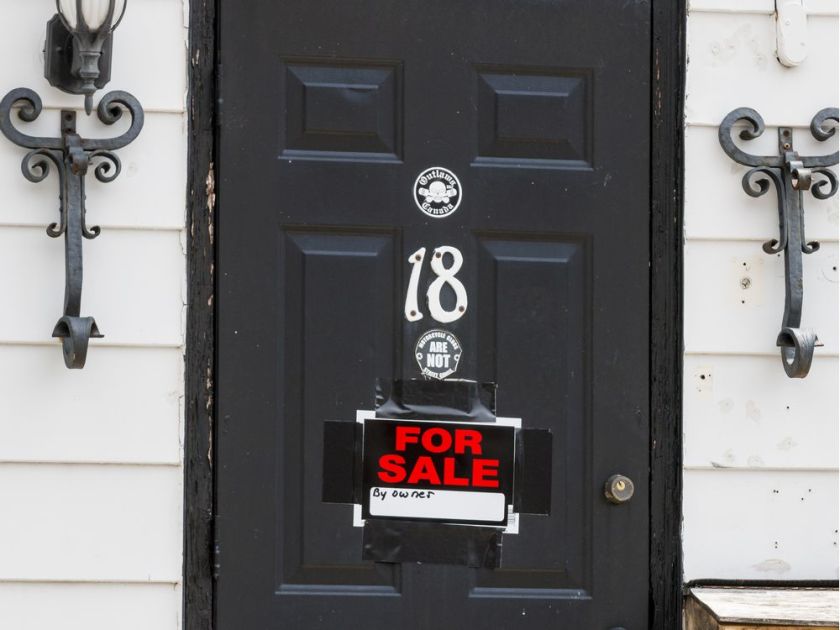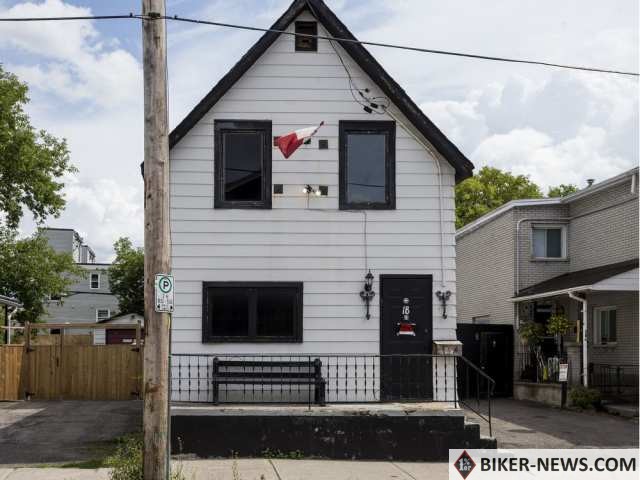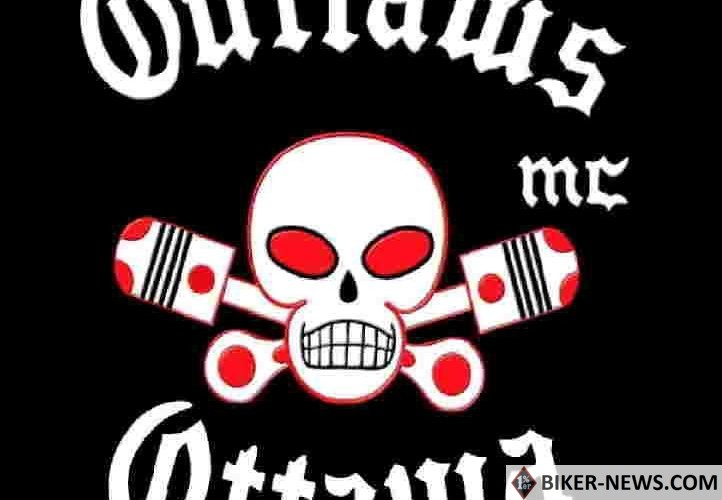There’s a new addition to the Outlaws clubhouse at 18 Ladouceur St. — a sign on the door advertising that it’s for sale, by owner.
No contact information accompanies the sign, and a knock at the door Monday afternoon went unanswered. It’s not clear what prompted the owner of the home and/or the outlaw motorcycle gang to decide the time was right to sell the property after decades in the house — requests for comment had not received responses by deadline Monday. But neighbours were quick to point to the changing composition of their street, where infill developments have sprung up between small, single-family homes.

“They feel estranged from what used to be a friendly neighbourhood,” said John Curry, who lives a few houses down from the clubhouse. “I think it’s unfortunate actually.”
This newspaper launched a look into Ottawa’s biker clubhouses after several Ladouceur Street residents shared concerns about their local Outlaws. They were the first to note that considering the influx of new, affluent homeowners, “they just don’t fit in, to be honest with you.”
But rather than celebrate the bikers’ possible departure from the neighbourhood, Curry said he was sorry to see them go. And he wasn’t the only one.
Another Ladouceur resident, who asked not to be named for professional reasons, said the Outlaws have been helpful neighbours, plowing driveways in the winter and welcoming newcomers.

Police often, and publicly, refute the common perception that outlaw bikers are unfairly framed as criminals, pointing to a long list of one-percenters — Outlaws, Hells Angels, and more — who’ve been charged with serious offences. But many are unconvinced, including the resident with whom this newspaper spoke.
“For us, as neighbours, we didn’t see any of that criminality that you speak of,” the resident said. “If they’re not nice people, why haven’t they been arrested? They have every right to live here like anyone else, and they’ve never done anything wrong to anyone on the street.”
The public opinion split on the subject of outlaw bikers could also carry over to the real estate aspect of any clubhouse sale that may occur.
According to A.J. Kassem, a sales representative at real estate brokerage Engel & Völkers, a prospective buyer might be deterred from 18 Ladouceur St. upon learning about its decades-long history as a biker clubhouse. But for others, the same fact could be a selling point, or even inflate the value of the property.
“I think it’s going to depend on the buyer, but I think the demographic … who’s looking in Hintonburg is someone who’s eclectic. Maybe it actually adds a little bit of heritage and history to the home,” said Kassem.
As for what the house, if sold, would be likely to go for, Kassem said it’ll depend on the current state of the property, the house’s structural integrity, and whether the owner is looking to profit from the sale of the land for redevelopment, or from a buyer who wants to maintain the original home — the latter tends to generate a higher sale price, he said. But in any case, the figure would be significant.
Hintonburg is a real estate hot spot, thanks in large part to irregular lot sizes and “lenient” zoning, Kassem explained. A home on a comparable lot to the clubhouse’s on nearby Hinchey Avenue went for more than half-a-million dollars last year, while an end-row unit on Ladouceur sold for close to $750,000.
So the black and white house on Ladouceur Street, scene of countless Outlaws parties and a 1994 car bombing?
“Someone could actually tear that down and build two semis,” said Kassem.
Make Sure You are Subscribed to our Facebook page!
Source: Ottawa Citizen
